Is an underactive thyroid impacting your weight?
Weight gain, disrupted sleep, feeling tired and even depressed – these are all symptoms of an underactive thyroid.
The British Thyroid Foundation estimates that thyroid disorders affect 1 in 20 people in the UK. Could you be one of them?
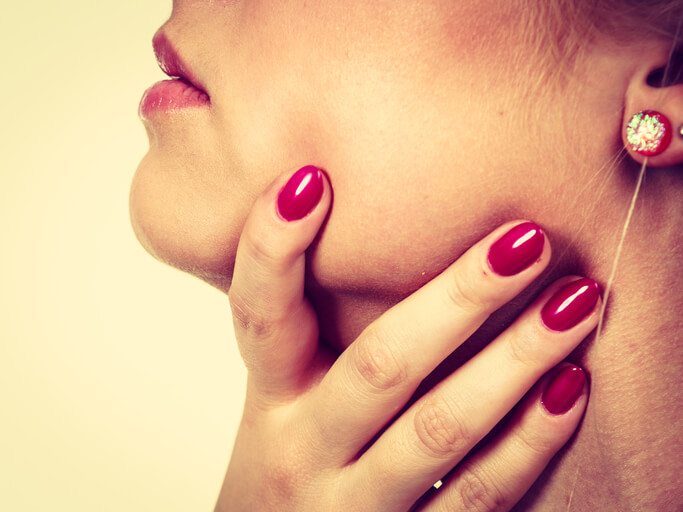
What Is hypothyroidism?
The British Thyroid Foundation defines Hypothyroidism as “a condition where the thyroid gland produces too little thyroid hormone for the body’s needs.”
The thyroid gland (located in your throat) makes thyroid hormones which control your body’s growth and energy. To function properly, your body has to have enough thyroid hormone. If your body is not making enough thyroid hormone your body slows down.”
Having an underactive thyroid or hypothyroidism is like a car trying to drive a car without petrol, and it can make you feel really sick. Here are some of the symptoms:
- Lethargy/fatigue
- Weight gain and fluid retention
- Depression/low Mood
- Sleep disturbance
- Thinning of hair and eyebrows
- Increased sensitivity to cold
- Breathlessness
- Dry skin
- Constipation
- Poor concentration
- Muscle pain and weakness
- Enlarged thyroid (Goitre)
- Low libido/ decreased fertility
- Menstrual changes
It’s thought that so many women go undiagnosed because they simply put these symptoms down to being busy mums.
While there are numerous causes, hormonal changes in women can be a big trigger.

What Should You Do If You Have These Symptoms?
The British Thyroid Foundation says hypothyroidism is very often misdiagnosed, or ignored completely. The organisation recommends arming yourself with information before visiting your doctor.
The foundation says thyroid disorders can be difficult to diagnose, so it recommends you ask your doctor for biochemical testing (serum TSH, T4, T3 and Thyroid Antibodies). You can also push for a thyroid ultrasound, which will determine if there are any abnormalities in the gland.
If you’ve got a family history of thyroid disease, or you’ve got a family history of autoimmune disease then there’s two thyroid antibody tests that need to be looked at. As well as that you should look at the amount of thyroid hormone your thyroid is making and how your body is absorbing it.
What foods should you eat/avoid if you have a thyroid disease?
Nutritionist Samantha Gemmell tells The Healthy Mummy certain nutrients and foods can help your body deal with thyroid disease, including:
Iodine – “Most people know that iodine is good for the thyroid, but aren’t sure why,” Samantha explains. “Iodine is the building block for your thyroid hormones. The easiest way to include it is by consuming seaweed. If you don’t love sushi, why not grind up some kelp and sprinkle it over salads for a salty crunch?”
Why not try the No Rice Sushi from the 28 Day Weight Loss Challenge?
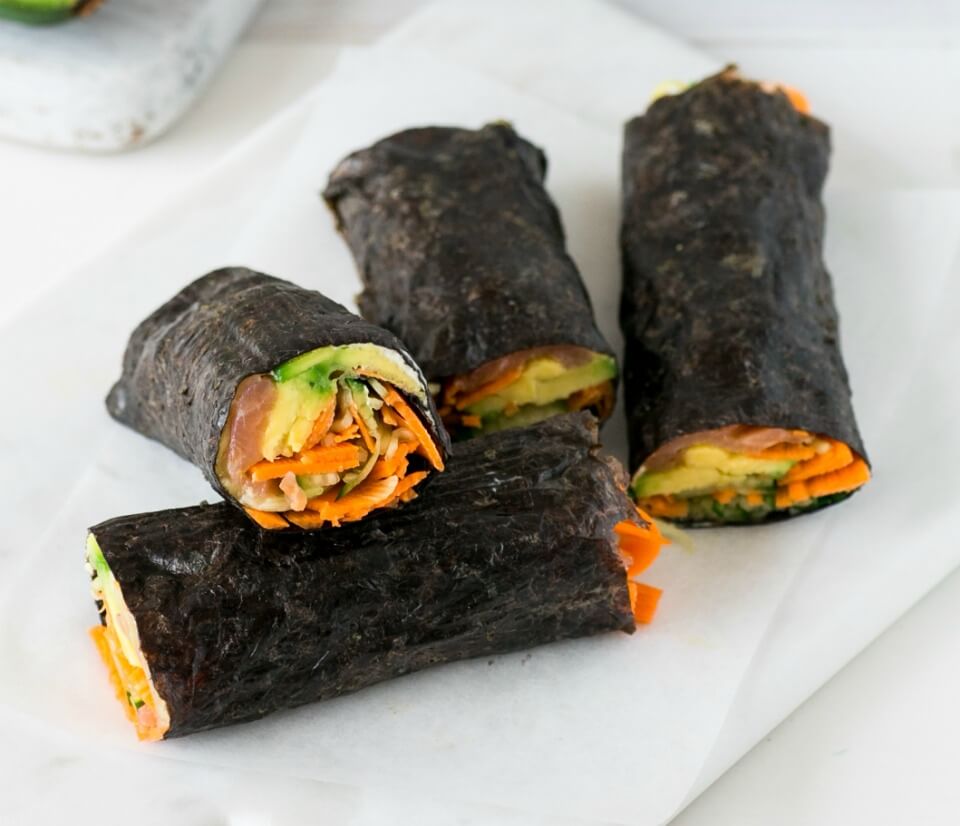
Selenium – “Another one of the critical nutrients for thyroid health. Selenium is a natural antioxidant. In fact, it’s currently being studied as a potential treatment for autoimmune thyroid conditions. Eating enough selenium is simple – just a few Brazil nuts a day will get you a daily dose. Don’t go too crazy though – excess selenium can be bad for your body.”
Zinc – “Making thyroid hormone is only half the battle. A lot of people have issues with converting the thyroid hormone into its active form. This is where zinc is critical. Zinc can be found in healthy amounts in seafood, eggs and meat. If you’re plant-based, you should be munching away on pumpkin seeds daily, and possibly consulting a health practitioner about supplementation.”
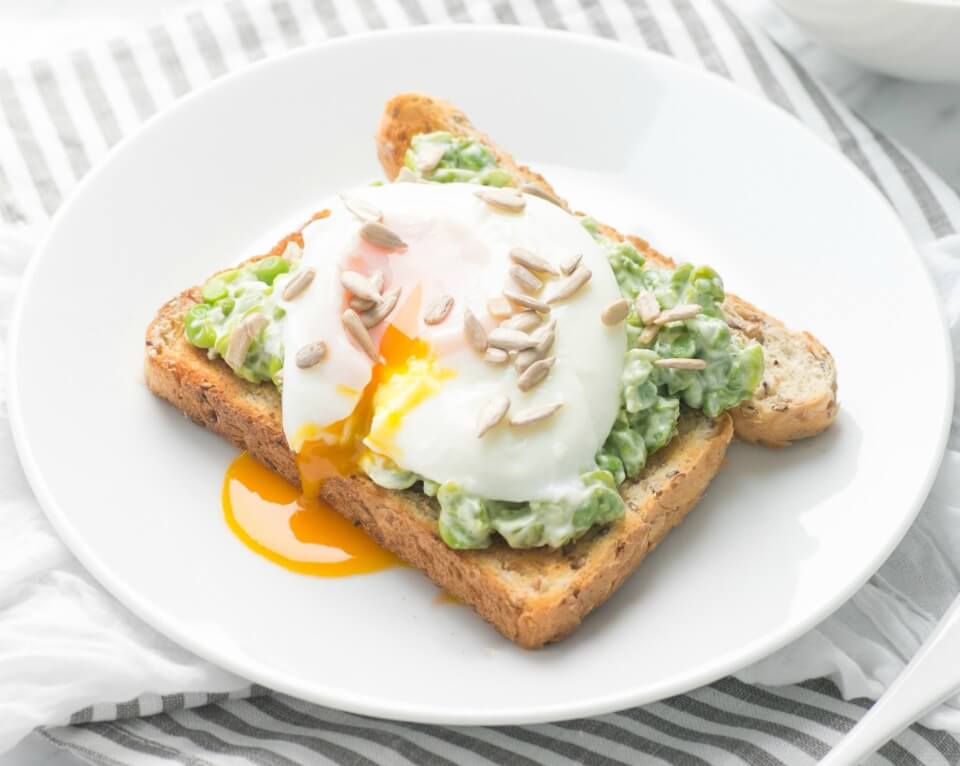
Try one of the many egg recipes from the 28 Day Weight Loss Challenge such as this Creamy Peas with Poached Egg on Toast.
Vitamin A – “Cooking plant foods, such as carrots, in a fat source will greatly enhance the levels that you absorb. You can also get true vitamin A through animal sources such as butter, liver and egg yolks.”
When it comes to what food to avoid, at the top of Samantha’s list is excess caffeine and alcohol: “Anything that depletes the body of nutrients is going to worsen the problem at hand,” she explains.
High GI foods should also be kept in check, because keeping blood sugar levels steady helps keep your energy levels up. Finally processed foods are also on the avoid list.
“Fake food is not food, it’s a food-like product. When you’re healing your thyroid, you want to have nutrient-dense foods 90 per cent of the time. Processed foods aren’t just empty, they can even drain the nutrients already in your body.”
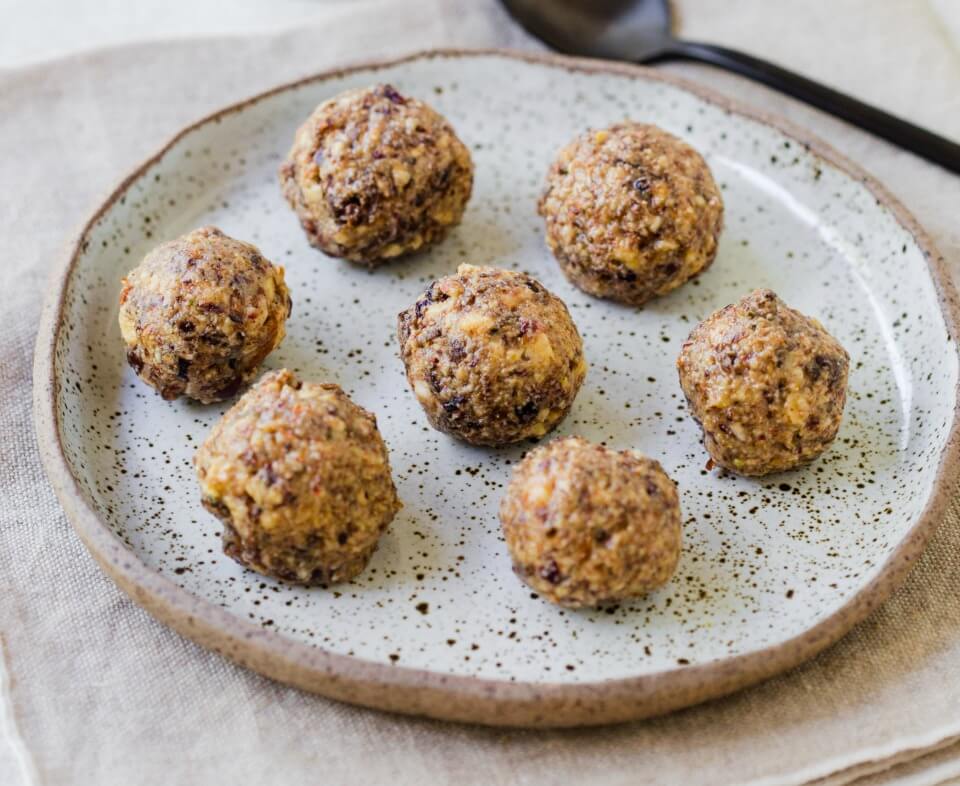
Try making your own healthier versions of your favourite treats, such as healthy bliss balls.
More information can be found at the British Thyroid Foundation
Save Money & Lose Weight With The 28 Day Weight Loss Challenge
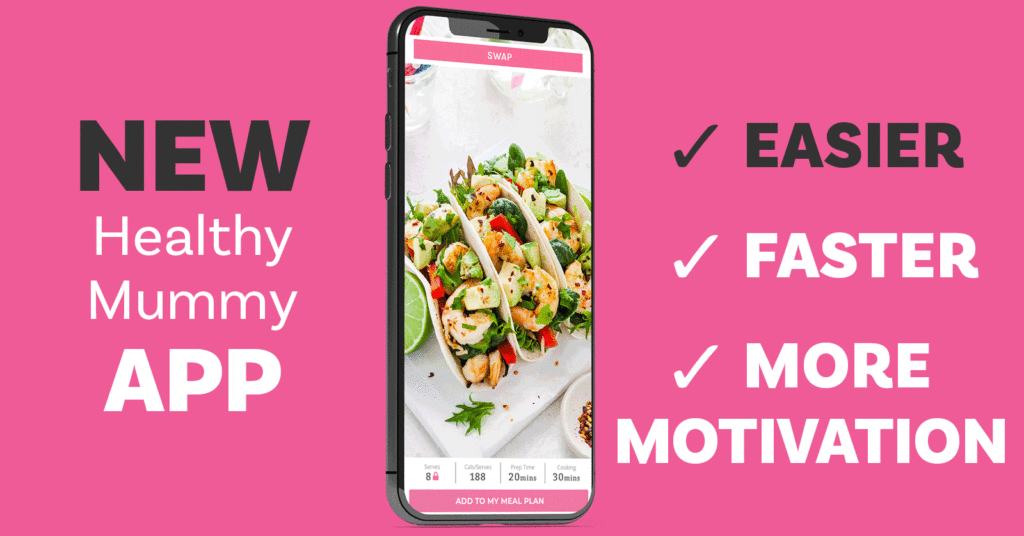
Want to shift your baby weight but feel like you have NO TIME in your day to exercise and eat healthily? That’s where the Healthy Mummy’s 28 Day Weight Loss Challenge can help.
Our Challenge entails:
- 28 days of at home exercise routines (no gym needed) – with video instruction
- Customisable and breastfeeding friendly meal plans
- Time-efficient exercises for busy mums – under 30 mins
- Challenge combines Pilates exercises with interval and circuit training (HIIT)
- Suitable for basic to advanced fitness levels.
- Home to thousands of EASY-TO-MAKE recipes.
To find out more about joining the 28 Day Weight Loss Challenge for £1 click here.
PLUS – connect with THOUSANDS of other mums on the 28 Day Weight Loss Challenge by joining our free support community here.



